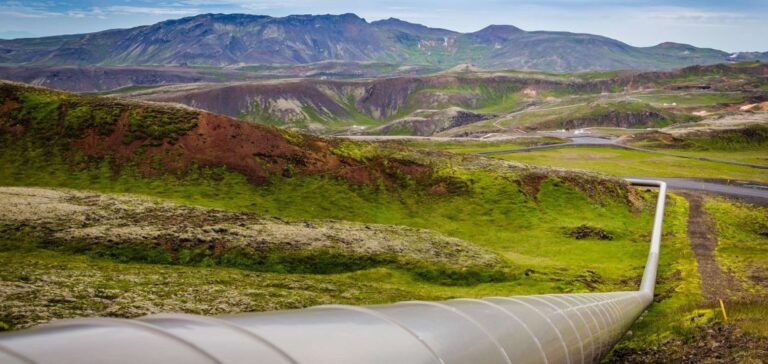The European Union (EU) and Ukraine are actively seeking to ensure the continuity of Russian gas flows to Central Europe, despite growing geopolitical tensions. The current transit contract, which allows the passage of around 15 billion cubic meters (bcm) of gas per year via Ukraine, will expire at the end of this year. While the EU has reduced its imports of Russian gas, some countries, such as Austria, still depend on this route.
Hikmat Hajiyev, presidential advisor in Azerbaijan, confirmed the ongoing discussions: “Yes, we have been approached by the EU and Ukraine to play a role in gas transit. We are working as a facilitator”. In addition, Azeri gas exports have increased enormously since 2022.
The Challenges of a New Agreement
Ukraine has announced that it will not renew the current transit contract, which could pose a major challenge for countries dependent on this gas. The EU has tried to compensate for the loss of pipeline gas by increasing its imports of Russian liquefied natural gas (LNG), reaching 18 bcm last year.
Azerbaijan could play a crucial role in facilitating a new agreement, but this requires significant investment in infrastructure. “We need more money to invest in the fields and more investment is needed in pipelines, but banks won’t invest because it’s gas,” said Hajiyev.
EU diversification efforts
To reduce its dependence on Russian gas, the EU has signed an agreement with Azerbaijan to double Azeri gas imports to at least 20 bcm per year by 2027. However, achieving this goal is hampered by financial and infrastructural challenges.
Uniper SE Vice President Michael Hilmer said the company was negotiating increased gas supplies from Azerbaijan, as part of an energy partnership signed in 2022 with the European Commission. The aim is to boost export capacity via the Southern Gas Corridor.
Perspectives and challenges
The situation highlights the challenges facing the EU in its energy diversification efforts. Investment in fossil fuels is increasingly limited by banking policies that favor renewable sources. Hajiyev expressed concerns about the security of investment: “Everyone in the EU says we need gas, but imagine Azerbaijan making its own investments, then the EU later saying there’s no need.”
As the EU continues to navigate a complex and rapidly changing energy landscape, collaboration with Azerbaijan could offer a partial solution, but substantial challenges remain.
Azerbaijan’s role as facilitator could prove crucial in maintaining stable gas supplies to Central Europe. However, the success of these efforts will largely depend on the ability to mobilize the necessary investment and overcome financial and political obstacles.






















